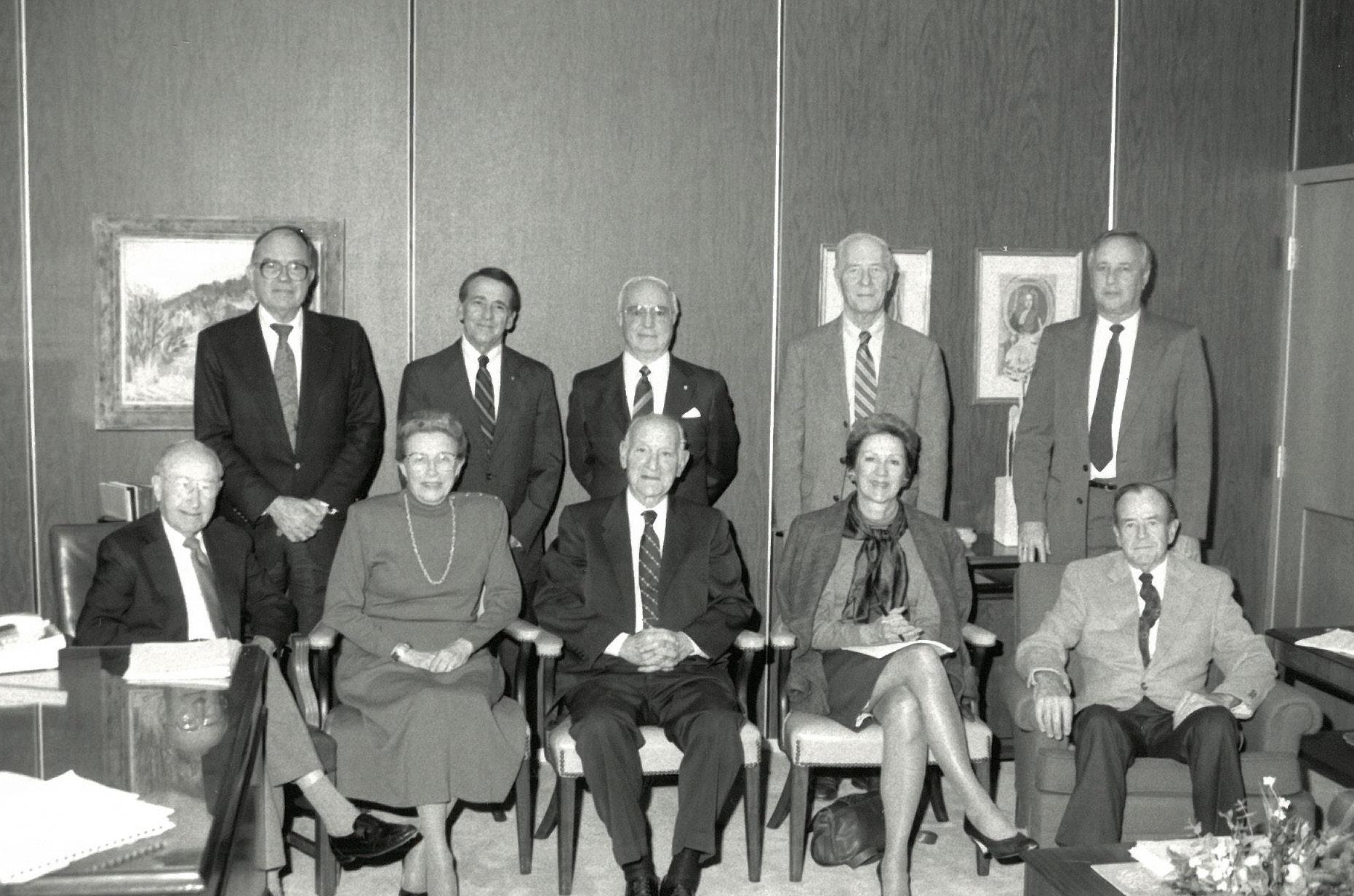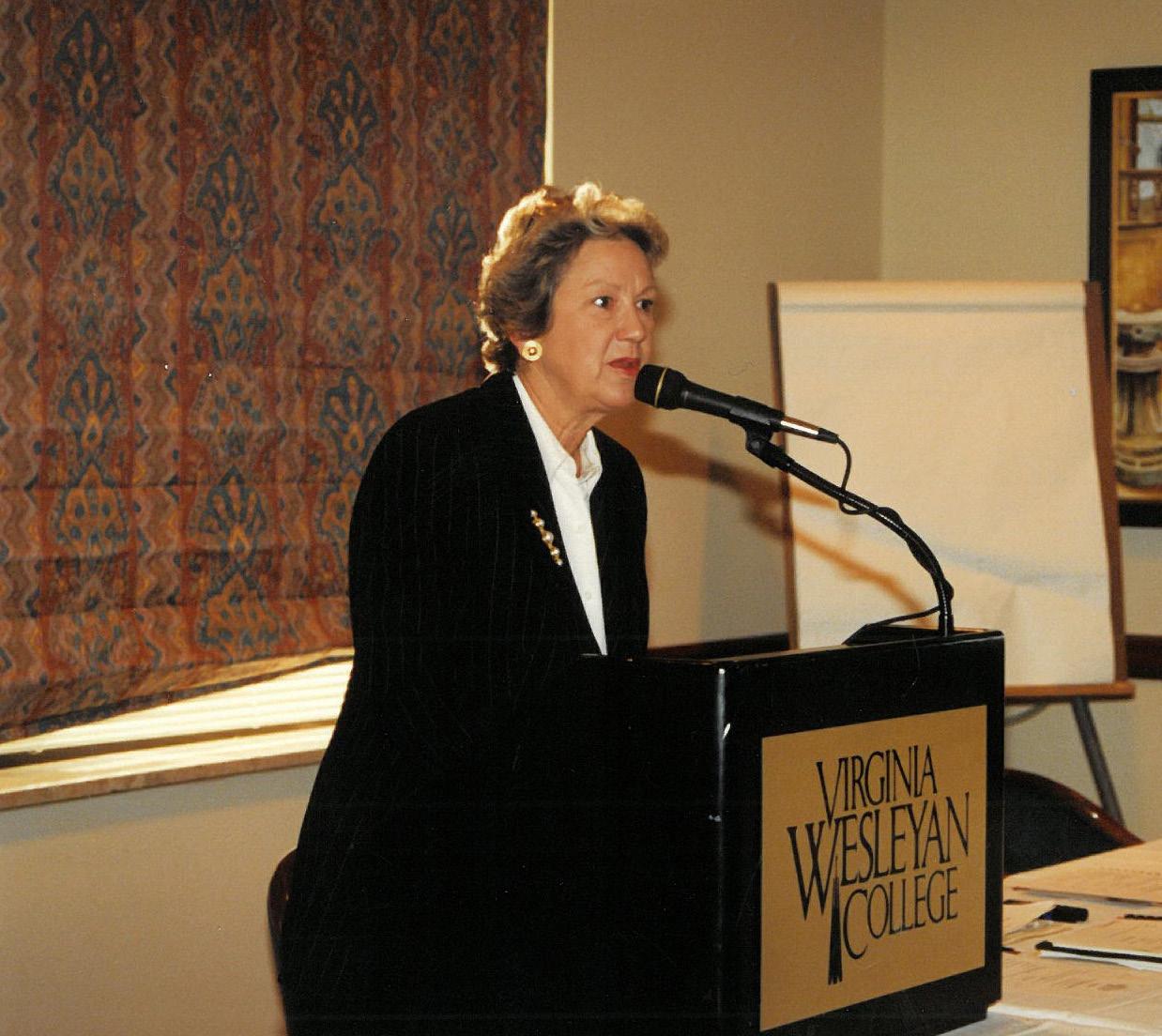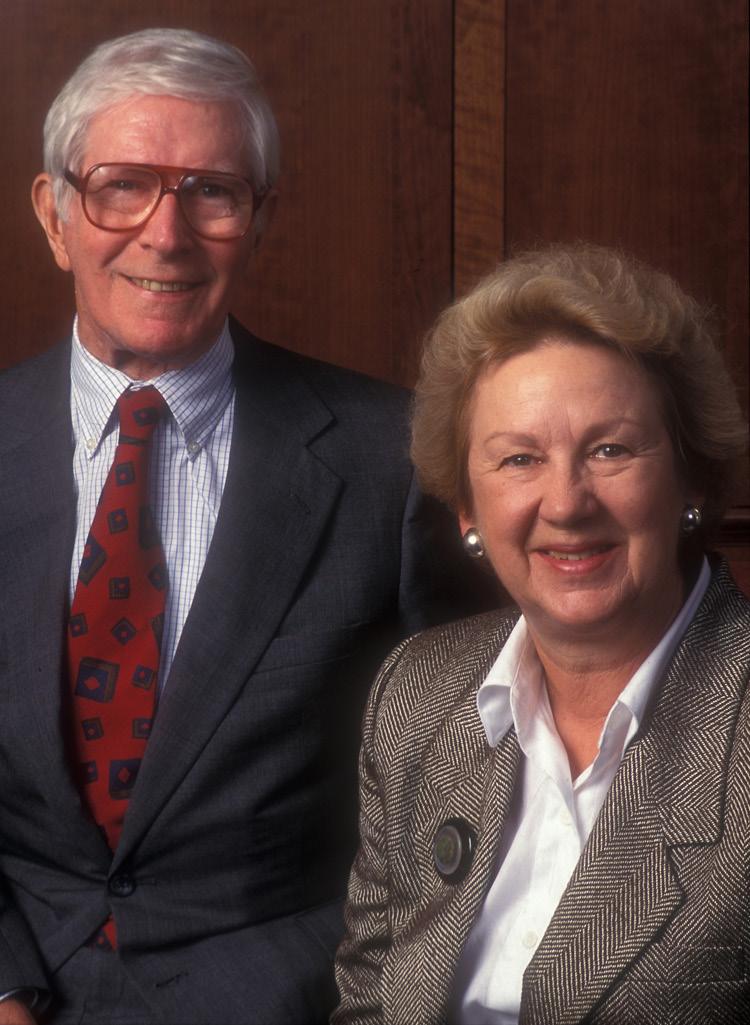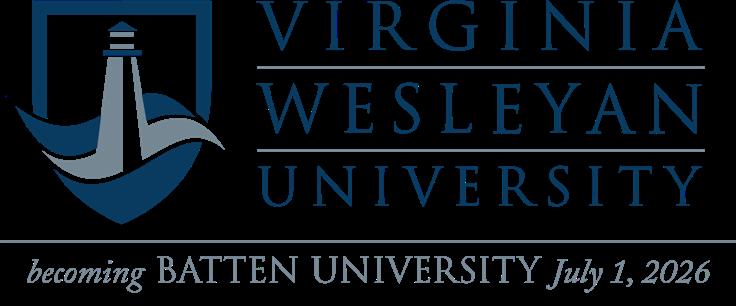VirginiaWesleyan

Becoming






When Virginia Wesleyan welcomed its first students to its current campus in 1966, it did so with a strong foundation and a bold sense of purpose. Though the College began modestly—graduating just 41 students in 1970—its potential for growth was unmistakable.
Over the decades since, that promise has flourished into a vibrant university with a global footprint, graduate and honors programs, Environmental Guiding Principles embedded in campus decisions, a prestigious College of Health Sciences coming into the fold, and transformative partnerships that reflect an expansive vision for the future.
The past six decades also brought sweeping changes to the landscape of higher education: the increasing diversity of student populations, including first-generation and non-traditional students; the profound impact of personal computers, the internet, and virtual platforms like Zoom; the heightened awareness of mental health issues, especially post-pandemic; the shift from teaching to “learning” as a pedagogical focus; and the challenges posed both by polarization in society and advancements in generative AI.
Yet thanks to the foresight of Virginia Wesleyan’s leadership and the generosity of its donors, the institution has not only kept pace with these changes, it has reimagined what higher education can be.
DA philanthropist devoted to education. An institution positioned to thrive. The result? A university that’s reinventing higher education.
uring those same six decades, Jane and Frank Batten also embraced change.
The late Frank Batten was first known as the longtime leader of the media enterprise Landmark Communications. Headquartered in Coastal Virginia, Landmark once owned nine daily newspapers, 50 weekly newspapers, several radio and television stations, and a national chain of classified advertising publications.
In 1960, under Frank Batten’s leadership, The Virginian-Pilot won a Pulitzer Prize for a series of editorials championing desegregation. Later in the ’60s, he was at the forefront of cable TV development. From 1982 to 1987, he chaired the board of the Associated Press.
Where his business acumen was most evident, though, was as co-founder of The Weather Channel in 1980, an endeavor few media experts expected to succeed, let alone flourish.
But it’s as transformative figures in the world of education that the Batten family has had the biggest impact. Their thoughtful and dedicated philanthropy has benefited their alma maters— Harvard Business School, Hollins University, and the University of Virginia—as well as other educational endeavors. National publications listed the couple among the country’s most generous philanthropists.
In 1978, Virginia Wesleyan became the fortunate recipient of Jane Batten’s time, talent, and treasure when her daughter, Mary, enrolled at the college. By 1981, Mrs. Batten had joined the institution’s Board of Trustees. In 1995, she became Chair of the Board, the first woman to hold the position. When her term concluded, the Battens made a gift to fund a state-of-the-art student center that—at Mr. Batten’s request—would bear his wife’s name.
“Higher education has always held great significance for our family,” he said in 1998. “I take particular pride in Jane’s meaningful leadership role in the development of this emerging institution.”
Virginia Wesleyan has remained a priority for Jane Batten ever since. In every aspect of the campus’ evolution, her role has been indispensable. As Board Chair, benefactor, and dedicated member of the university community, she has championed values-driven leadership, environmental stewardship, and international study. (See The Batten Legacy.)
Just as the Virginia Wesleyan campus has enriched Coastal Virginia’s broader educational landscape, so, too, has Jane Batten’s influence extended into the region’s pre-K initiatives and graduate programs. And her focus on issues such as technology, environmental sustainability, equal access, and societal polarization reflects her deep understanding of higher education’s role in addressing contemporary challenges.
In 2024, the Virginia Foundation for Independent Colleges honored Mrs. Batten for her transformative support of private education in the commonwealth. And earlier this year, the Virginia House of Delegates unanimously passed a resolution that “commended Jane Parke Batten for her unwavering dedication to philanthropy, her visionary leadership, and her profound impact on education, community development, and environmental conservation.”
Virginia Wesleyan Trustee Emerita Joan Brock, also a former Chair of the Board of Trustees, has collaborated with Mrs. Batten on several philanthropic endeavors.
“Jane is a big-picture thinker,” Mrs. Brock said. “She’s out of the box in her thinking. She’s a visionary.”
Nowhere has that vision been more profound and transformational than at Virginia Wesleyan.

“Two days before my start date,” said President Scott D. Miller, Ph.D., “Jane called and said let’s spend some time together when you arrive. So we walked the campus and we talked and we looked at things and I listened. And I heard what her vision was for this place. As I talked with her, she said, ‘You have a reputation for getting things done. There are some things that I’d really like to get done.’”
Many of those projects were mapped out in a 10-year master plan, which was developed in 2015. This plan held true to the University’s mission while boldly charting a course for the future through a comprehensive process that involved Virginia Wesleyan faculty, staff, and trustees.
“Moreover,” Dr. Wansink continued, “the word itself has a distinct meaning, rooted in strength, stability, and resilience. A ‘batten’ reinforces and secures structures, aligning perfectly with the University’s mission to provide a foundation for success and adaptability in a rapidly changing world.”
That foundation became even sturdier with another monumental announcement made in June. After years of thoughtful dialogue, careful planning, and shared vision, Sentara Health and Virginia Wesleyan reached a transformative decision: Sentara College of Health Sciences, with its legacy dating back to 1892, will become part of Virginia Wesleyan University in 2026.
““On July 1, 2026, Virginia Wesleyan University will officially become Batten University,” announced Nancy DeFord, Ed.D., Chair of the University’s Board of Trustees.
“This bold step reflects our shared commitment to addressing critical healthcare workforce needs while advancing access to high-quality education,” President Miller said. “By uniting Sentara’s rich legacy of healthcare excellence with Virginia Wesleyan’s academic infrastructure and student-centered mission, we are creating a powerful model for the future of health sciences education in Coastal Virginia and beyond.”
This is more than an institutional merger, President Miller explained. “It is a profound affirmation of who we have become and where we are headed. Sentara College, long respected for preparing nurses, allied health professionals, and lifelong learners, will help propel our University into the future with renewed relevance and reach.”
This groundbreaking agreement, he said, will define the University’s next era of promise, purpose, and progress. Incorporating the 133-year-old Sentara College of Health Sciences further broadens both the heritage and the vision of the institution that’s soon to become Batten University.
Education, like life, is a journey,” Dr. Wansink wrote in his analysis. “Batten University will symbolize the tools and stability needed to navigate challenges. The campus’ beacon, or lighthouse, further underscores this idea, representing guidance and illumination. The phrase ‘batten down the hatches’ speaks to preparedness and resilience—qualities essential for both academic and personal growth. In a divided world, Batten University can symbolize not only weathering challenges but also navigating toward a brighter, shared future.”

While the name Virginia Wesleyan reflects a Methodist heritage, by no means will the transition to Batten University diminish that legacy, President Miller said.
“The core principles of service, ethics, and community— hallmarks of Wesleyan traditions—remain central to our University’s mission. Instead, this change amplifies our institution’s reach, aligns with our growth, and ensures our continued relevance in a diverse, pluralistic society.”
The past 10 years have been a time of extraordinary growth and transformation, he added. “We are not the same institution we were in 1961. Today, we are online. We are in Tokyo. We are deeply embedded in the community. Marlins can be found at The HIVE, Westminster-Canterbury on the Bay, the Virginia African American Cultural Center, Chesapeake Bay Academy, Tidewater Collegiate Academy, St. Brides and Indian Creek correctional centers, dozens of schools throughout the commonwealth through our robust Advanced Scholars Institute, and in many more places.”
Now with Virginia Wesleyan University and Sentara College of Health Sciences joining forces, a shared mission is amplified.
“We become something greater than the sum of our parts,” President Miller said.
This is reflected, he noted, in the University’s new Carnegie Classification as a national Arts and Sciences institution. “Only 6 percent of higher education institutions in the nation earn this distinction, reflecting how pivotal we are today in the higher education landscape.
“We become the best of both the arts and sciences,” he said. “We become Batten University.”
Dr. Nancy DeFord pointed out that not only was the Board of Trustees’ vote to transition to Batten University unanimous, it was enthusiastic.
“By embracing a name that symbolizes strength, stability, and resilience,” Dr. DeFord said, “we are proud to honor Jane Batten’s transformational contributions and set a course for a strong, new chapter in our University’s history. We are not the same institution we were 10 years ago—or even last year.
“The name Batten,” she added, “is a testament to the love, care, philanthropy, and ideas that the family has contributed to Virginia Wesleyan. Over time, we can all take a great deal of pride in carrying that name forward.”
y Jane P. Batten Student Center (including 7 connected facilities)
y Batten Honors College
y Batten Scholars (80 full tuition, 80 3/4ths tuition)
y Greer Environmental Sciences Center
y Virginia Museum of Contemporary Art
y Jane and Frank Batten Distinguished Scholar Award (for faculty)
y Batten Professors (8 per year)
y Batten Global Travel Fund
y The Bell Tower (Beacon)
y East Gate Entrance
y Lakeland University Japan
y Jane P. Batten & David R. Black School for International Studies
y Environmental Guiding Principles / Endowment Investment
y Geothermal Field
y SmartFlower
y Greer Center Greenhouse & Gardens
y Summer Scholars Program (environmental education for rising 9th grade girls)
y The Excellence Fund (largest contributor in VWU history)



y Ocean Explorer
y Birdsong Field
y Camp Red Feather (YMCA)
y Science Hall renovation
y Honors Village
y Godwin Hall
y Clarke Hall
y Brock Village
y The Trails at Wesleyan Woods
y Bobby Levin Scholarship and Endowment
Family-Supported Projects at VWU
y Landmark Scholarships
y Work and Learn Program
y Robert Nusbaum Center
y C.S. Lewis Chair in Communication and Christian Thought
y Virginia Aquarium and Marine Sciences Center
y Brock Environmental Center, Chesapeake Bay Foundation
y Ryan Resilience Lab, Elizabeth River Project
y Batten Environmental Education Initiative, WHRO
VWU
y Frank Batten School of Leadership and Public Policy, University of Virginia
y Batten School of Coastal and Marine Sciences, College of William & Mary

